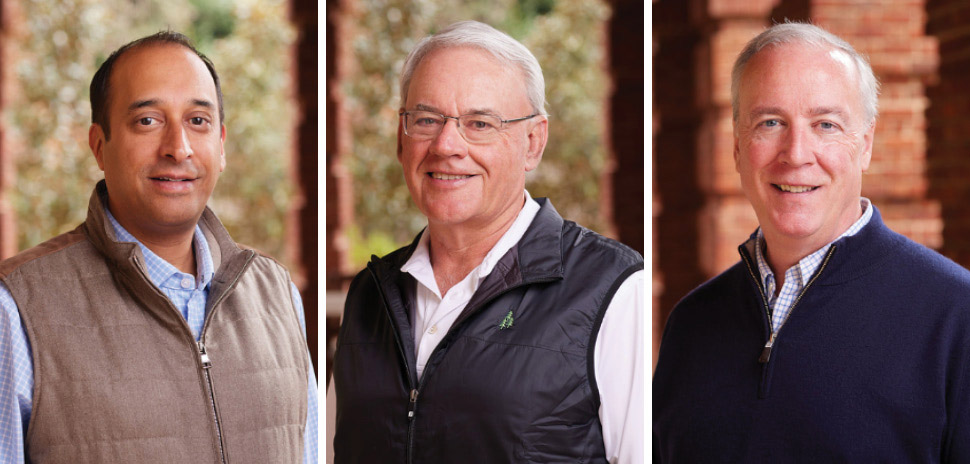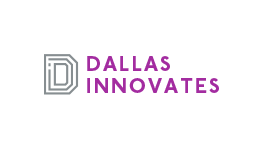Dallas-based Cypress Growth Capital has just made its landmark 50th portfolio investment with a $4 million stake in Utah’s ChartSquad, a medical records software provider disrupting the $10 billion industry.
The investment is on the heels of the firm’s recent $2 million infusion into Virginia-based PFA Solutions, a financial industry SaaS provider; its $3 million commitment to Dallas-based CloudRadial, a client services automation provider for IT managed service providers; and an undisclosed amount of financing for Colorado-based PickNick Robotics.
Vik Thapar, managing director of Cypress Growth Capital, says he expects investments No. 51 and 52 within the next 30 days.
‘Extremely busy investing’ while many ‘are sitting on the sidelines’
In an interview with Dallas Innovates, Thapar detailed the firm’s equity-preserving investment approach and shared insights on current market trends.
“We have been extremely busy investing in companies while many investors are sitting on the sideline waiting for an autocorrection,” Thapar told us. “I do not expect things to slow down for us.”
Thapar—who has over 20 years of experience in venture capital, private equity, and information technology consulting—says caution has become a defining factor in the current investment landscape.
‘Market recalibration,’ not ‘autocorrection’
“Investors are waiting for entrepreneurs to control their burn and for valuations to come down,” he said. While “autocorrection” may sound ominous to some, Thapar says it simply represents a reevaluation period and prudence among investors. “Market recalibration” might be more fitting, he says, reflecting on the strategic adaptations investors make in response to the prevailing economic climate.
Due to concerns over high valuations and significant ‘burn rates’ (the rate at which a company is spending its capital), many investors are waiting for businesses to break even or reduce their burn rates before investing, he says. This has resulted in less capital being deployed.
Making investments often between $1 and $5 million
Despite the broader trend, Thapar emphasizes that Cypress remains “very” active. It’s focused on companies that haven’t raised significant capital previously and are now seeking smaller investments—often between $1 and $5 million—to fuel their growth. The firm’s approach, which emphasizes giving these companies greater control and flexibility, appears to be a thriving model.
Thapar says Cypress’ focus on underserved markets has allowed it to find opportunities even in a cautious investment environment. “We’re investing in companies others might be overlooking,” he said.
Non-dilutive, royalty-based investment growth capital
Cypress Growth Capital has earned recognition as an alternative to late-stage venture capital.
While the firm has some similarities to PEs and VCs, it doesn’t neatly fit into traditional investment models. Cypress describes itself as a royalty-based firm which also makes equity investments. To say it has a unique approach to early-stage investment is an understatement, Thapar says. It’s “very different.”
The managing director, who has led Cypress for over a dozen years, has seen a growing need for funding alternatives, especially as entrepreneurs have learned valuable lessons from recent years.
“Entrepreneurs need options,” he said. “We saw the need for an alternative route to growth.”
“Many entrepreneurs are concerned about losing control and equity when raising traditional capital. We wanted to provide a solution that allows them to grow without diluting ownership,” Thapar added.
An antidote to a default approach
Thapar sees a common mindset of many business owners and entrepreneurs when it comes to growing their companies: An equity raise is a default approach. “People are so attuned to the idea that growth requires equity raise, they overlook alternative ways,” he said.
Thapar and his team want to help entrepreneurs choose the best course for their company’s future—without feeling immediate pressure to raise equity.
Raising equity—bringing in capital by selling parts of the company in the form of shares—can help fund a business’ growth, but it also means that the original owners or stakeholders end up owning less of the company, a process known as dilution.
The firm’s team, all equipped with operational backgrounds, bring their expertise to the table to aid help in a manner similar to equity investors. “But without the dilution,” Thapar noted.
Serving an underserved niche
Thapar believes that the Cypress investment approach serves an underserved market.
The companies Cypress invests in are typically early-stage tech companies, with revenues ranging from around $2 to 3 million to $10 to 15 million, though most fall under $10 million. Thapar explains that these businesses might not necessarily be seeking large capital injections. Instead, they’re on the hunt for funds that can propel them to the next stage in their growth trajectory. In this context, the “check sizes” Cypress writes are comparatively smaller than those of other investment firms.
This approach of providing smaller, strategic investments coupled with extensive operational support distinguishes Cypress in the investment landscape. The support is tailored to the unique needs of each portfolio company, leveraging the operational experience of Cypress’ team members.
Targeting markets ‘with a nice growing tech ecosystem’—with Dallas as an ideal
In terms of markets, Thapar said, “We’re not spending time in California, New York, and Massachusetts. We’re spending time in Texas, Colorado, Arizona, Georgia—markets with a nice growing tech ecosystem.”
Dallas has proven to be an ideal home base for Cypress Growth Capital. Here, “entrepreneurs tend to do more with less and are focused on controlling their destiny,” Thapar said. “It’s a perfect market for us, and I don’t see it slowing down.”
The firm is located at Old Parkland, a prominent landmark and office complex in Dallas. The campus, built around a restored early 20th-century hospital, has become a notable financial district with a concentration of financial and investment companies.
Fueling growth for revenue-generating companies
Cypress Growth Capital invests in companies that have typically not been venture-backed and have taken a more “bootstrap approach.” Thapar says these companies have often raised angel or seed rounds and reinvested their profits to fuel growth. Cypress often steps in at this point to provide additional capital for faster scaling.
Cypress latest investment in ChartSquad is a prime example of the firm’s portfolio. As Cypress partner Vincent Hsieh says, the company’s medical record software solution is increasingly a “must have,” and the company has tripled in growth in the past three years with no outside capital.
Thapar looks for companies entering a new growth phase with the data to support that confidence. “Their average contract value is going up. Things are maturing, because the company has entered that next phase,” he said.”The metrics are there.”
That’s typically when Cypress comes in, he said: “Why dilute yourself when things are headed in the most-right direction?”
“Our aim is to help companies reach an inflection point where they can confidently decide whether to continue growing organically, pursue a growth equity round, or explore strategic or private equity recapitalization,” the managing director added.
This funding approach lets entrepreneurs postpone making a “substantial financial decision”—such as a larger funding round or an equity decision—for another 12 to 24 months, he said.
By delaying the “point of decision,” companies may put themselves in a more advantageous position and favorable environment.
A symbiotic relationship
Thapar, who’s also a co-founder of the nonprofit group Venture Dallas, considers the group as collaborators, not competitors, with equity funders. “In reality, we often work with companies not currently looking for equity funding,” he said. “They’re eyeing potential equity financing down the road.”
A company funded by Thapar’s organization today could be a suitable candidate for equity investment tomorrow, or vice versa. By sharing potential investment opportunities, both sides of the investment equation can profit.
“We work hand in hand with equity investors, but at different stages,” Thapar said. “Our capital and support can help bridge companies to later-stage growth equity. Different stages of a company’s growth demand different types of funding, and we’ve positioned ourselves to provide an alternative or complementary form of financing during these stages.”
Thapar says the firm plays a crucial role in bridging the gap between angel/seed rounds and growth equity or PE rounds.
“There’s nothing wrong with venture capital,” Thapar added. “Many of our companies go on to raise equity.”
Still, he says, it’s crucial for entrepreneurs to comprehend that with equity comes certain obligations. “Those often involve giving up board seats and certain control measures,” he said. “Obviously, the investors get a stake in the business.”
Investing in SaaS and tech-enabled services
Cypress invests exclusively in SaaS and tech-enabled services companies in the U.S. Thapar points to the firm’s track record, noting that 90% of the companies funded by Cypress achieve their desired outcomes—with an emphasis on “their,” he says.
Cypress tailors its strategic capital and operational support to meet each portfolio company’s unique needs and goals, Thapar says. That personalized approach allows companies to maintain more control over their growth trajectory and make decisions that align with their long-term vision.
Helping to create over $410 million of entrepreneur wealth
It’s a strategy that’s facilitated the creation of over $410 million of entrepreneur wealth, making Cypress a driving force behind the growth and prosperity of the companies it partners with, the managing director says. The firm’s investment model has created $2.4 billion in enterprise value through its portfolio companies. Notable among these success stories are two prominent North Texas companies: Dialexa, which was acquired by IBM in 2022, and Geoforce, which underwent a significant majority recapitalization by LLR Partners in 2019.
Other significant deals within Cypress Growth Capital’s portfolio include Stackify, acquired by Netreo in 2021; Riveron’s majority recapitalization by HIG Capital in 2019; and Clearvoice’s acquisition by Fiverr in 2018.
Operational “horsepower”
Cypress is an active partner in helping its portfolio companies achieve their growth objectives. Beyond the financial resources, the firm lends its operational expertise to the businesses it backs, Thapar said.
Thapar says his firm performs many of the tasks that a board member might, but without taking board seats. That might include strategic guidance, advice, and support, but without the formal control that comes with a board seat.
The firm’s approach to building its team with individuals who have been founders or executives of successful companies gives Cypress a unique position to offer depth of experience and knowledge to its portfolio companies.
The aforementioned Vince Hsieh, a former Geoforce COO, CFO, and board member, joined Cypress as a partner just over a year ago. But he was no stranger to the firm. “We’ve known Vince for over a decade,” said Thapar. “We first met him when we invested in Geoforce.”
Hsieh was the third employee of Plano-based Geoforce. Thapar says that his experience in guiding Geoforce from an early-stage company to a successful exit makes him an invaluable asset to the Cypress team.
“Geoforce followed a growth trajectory that aligns with our investment approach,” Thapar said. “The company initially raised capital from angel investors and us, then pursued a growth equity round before being acquired by LLR Partners.”
Cypress Partner Pat McCaffrey, who joined the firm two years ago, was a former COO of Omnitracs—a company backed by Vista Equity Partners. “We’re also in the process of hiring another person with extensive operating experience,” Thapar said.
Thapar, who has been with the firm founded by Ed Mello and Barton Goodwin for 12 years, says his approach to team building is deliberate.
“Five out of the six of us have extensive operating experience,” says Thapar. “That’s very unique for a firm, especially a firm that does what we do, to bring that horsepower to a company to help them.”
![]()
Get on the list.
Dallas Innovates, every day.
Sign up to keep your eye on what’s new and next in Dallas-Fort Worth, every day.


































































